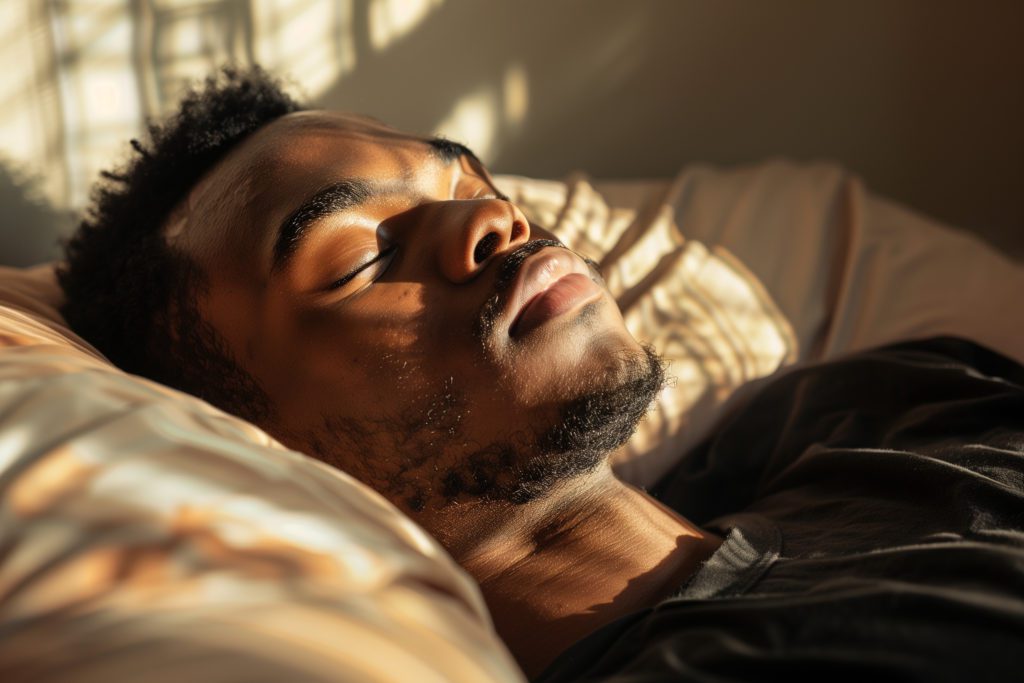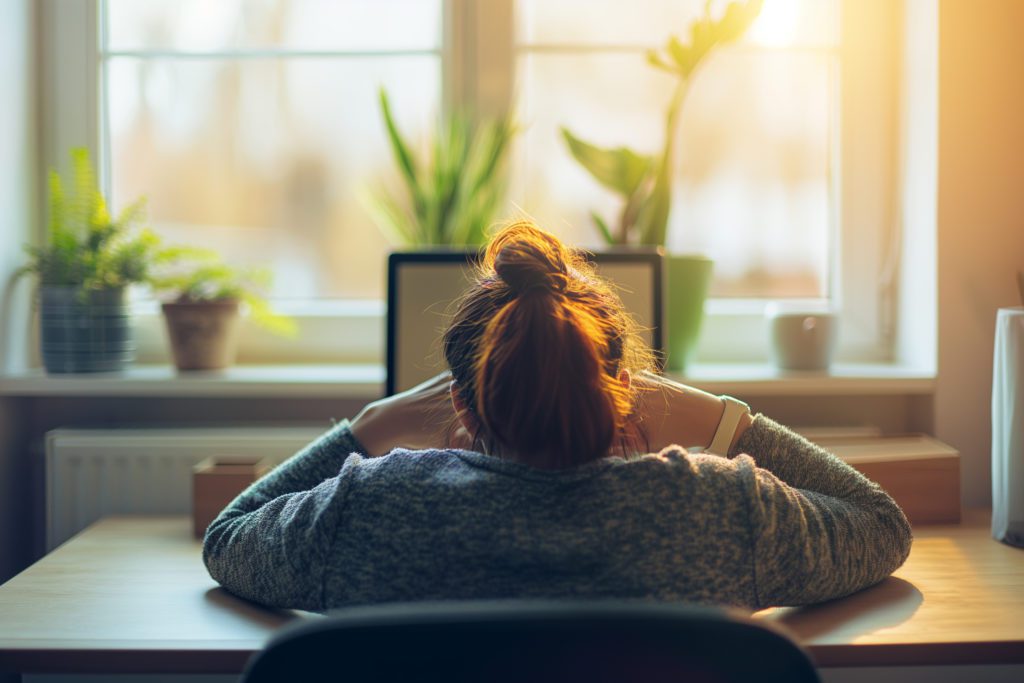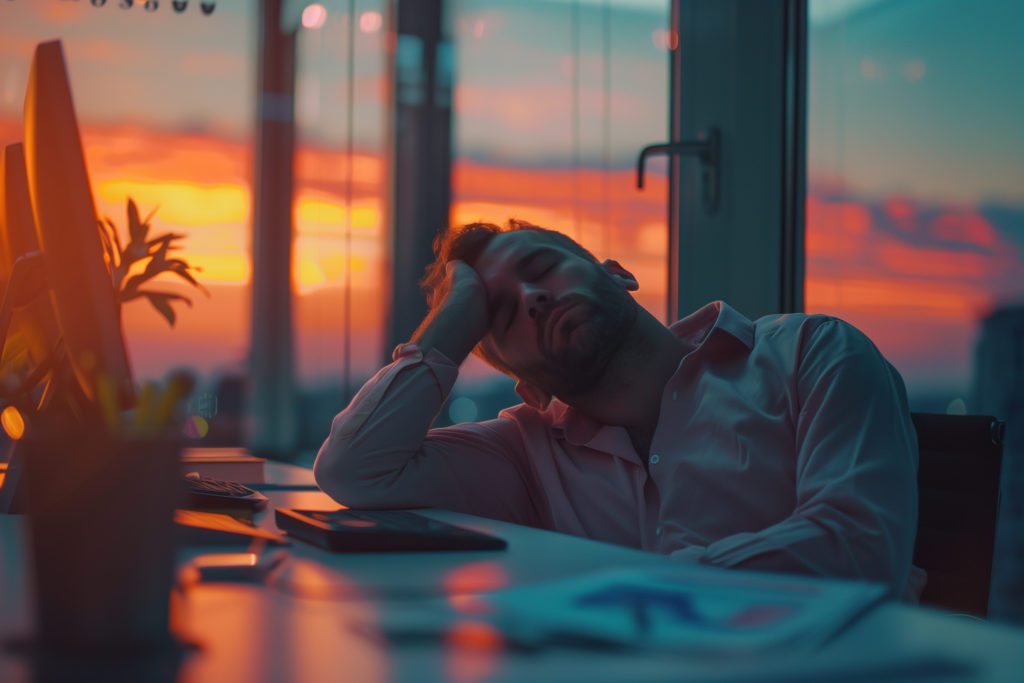
Is It Normal to Sleep After Going to The Gym?
Learn what may make someone feel an urge to nap after the gym, the pros and cons of napping, and when fatigue may be a sign that the body needs a break.

There’s nothing quite like the feeling of your blood pumping after a good workout, your pleasure in yourself sticking to your fitness goals matched only by the endorphins flooding your body as your own personal prize. However, while exercising often offers a burst of energy, some people may feel tired afterward and crawl immediately from the gym to their bed (perhaps with a shower and change of clothes first).
This begs the question, is it normal to feel this need to sleep after the gym, and should you fight it or embrace it?
There are both pros and cons to napping after a workout—which is the right choice for you depends on many factors.
Why Am I Tired After a Workout?
If you’re sleepy after going to the gym, it may be because of exercise-induced fatigue.
Not everyone experiences exercise-induced fatigue; researchers looking into the reasoning behind exercise-induced fatigue state that fatigue is conditioned by factors that include gender, existing sleep deprivation, and psychological disturbances (e.g., stress). Whether or not you’re predisposed to exercise-induced fatigue then varies based on whether these factors are present.
As for why this tiredness occurs, there are two types of exercise-induced fatigue—peripheral fatigue and central fatigue—which correlate with the peripheral and central nervous systems, respectively.
Your Muscles Are Working Hard
When you exercise, your muscles go through repeated muscle contractions to change the muscles themselves. These contractions require energy, though, and when this energy compound, called adenosine triphosphate (ATP), depletes in the muscles, peripheral fatigue can occur.
Your body seeks to replenish ATP while you’re exercising, but the breakdown of ATP causes byproducts called metabolites to build up, which then interfere with muscle contractions and further increase peripheral fatigue.
Your Mind Is Taking Over
While fatigue can come from the physical effect of exercise on your muscles, with central fatigue, the feelings of sleepiness come from changes in your brain. Specifically, the brain may reduce its neural drive to your muscles, reducing the force, power, and performance seen. These changes may be brought on by the changes in neurotransmitter concentration (e.g., serotonin, glutamate, dopamine) in the brain seen during exercise, which can then trigger those feelings of tiredness.
Thus, there are two primary roads leading to fatigue after a workout. Now arises the question: should you power through or let your mind and body rest?
Should You Sleep After Going to The Gym?
If you’re feeling tired after the gym, you may be considering taking a nap; there are some significant pros to this decision, such as:
- Reduces fatigue. While not as effective as a full night of sleep, napping can offer a quick boost to your energy levels and help you see the day through to its end.
- Increases alertness. On top of increasing your energy levels, napping can also increase your alertness, which can then increase your productivity.
- Supports your recovery. It’s not just your mind that feels better after a nap; your muscles can see the benefits, too. While sleeping, your body repairs its muscle tissue and builds up new tissue, which supports your recovery time.
- Improves Memory. That increased alertness brings along a better memory, with research showing that napping after you exercise improves your memory even better than just exercising or napping—the benefits of both combine when you’re strategic in the order.
However, there are some things to be aware of before you give in to the post-gym sleepiness. Most importantly, napping too close to your bedtime can interfere with your nighttime sleep, as can napping for too long. With sleep deprivation contributing to exercise-induced fatigue, the more you give in to napping urges after the gym, the worse you may sleep at night, and the more you’ll feel the need to nap after exercising—and so the cycle continues.
Napping may also cause the opposite effect; it may make you feel even more tired. This is due to a phenomenon called sleep inertia, which experts believe occurs when you wake up during deep sleep. To prevent sleep inertia, it’s often best to keep your naps to 30 minutes or less.
Sometimes, fatigue may be your body’s way of telling you that you’re training too hard and not giving yourself enough time to rest. Rest is a crucial component of recovery and is time for your body to repair and grow new muscle tissue, so if you’re feeling tired after every workout, it may be a sign that your body needs more time for recovery.
Is It Normal to Sleep After Going to The Gym? Sometimes.
Whether or not it is normal to feel the need to sleep after exercising is something that varies by person, as do most things in life. Factors such as gender, sleep deprivation, and stress can all contribute to whether or not you feel a need to sleep after going to the gym, so some people may feel the urge while others only feel the energy-boosting effects of increased oxygen circulation.
If you feel sleepy after the gym and want to take a nap, keep these tips in mind:
- Keep it to 20 minutes or less to prevent grogginess, or nap for a full 90 minutes to complete a whole sleep cycle—however, this may be more intrusive for your nighttime sleep.
- Avoid napping too late in the day.
- Block out light and noise so you can nap uninterrupted.
Ultimately, feeling the need to nap after going to the gym is normal sometimes, but if you’re always feeling tired after the gym, it may be a sign that you’re working out for too long or too frequently. Consider taking it easy to give your body time to recover—you may even find that your results improve when you do.
FAQ
Can overtraining lead to excessive fatigue post-exercise?
Yes, overtraining can exhaust muscles and the central nervous system, leading to persistent fatigue, poor performance, and even insomnia. Recovery is crucial—proper rest days, sleep, hydration, and balanced nutrition can help prevent overtraining syndrome and maintain energy levels.
Is it normal to experience insomnia after intense workouts?
Yes, high-intensity workouts raise heart rate, adrenaline, and body temperature, making it harder to relax and fall asleep. Exercising too close to bedtime can delay melatonin production, so it’s best to schedule intense workouts earlier in the day to avoid sleep disruption.
Can certain medical conditions cause excessive fatigue after exercise?
Yes, conditions like anemia, thyroid disorders, and chronic fatigue syndrome can increase post-workout tiredness. Low iron or thyroid imbalances reduce oxygen delivery to muscles, causing quicker exhaustion. If fatigue persists despite good sleep and nutrition, medical evaluation may be needed.
Can lack of sleep before exercise worsen post-workout fatigue?
Yes, inadequate sleep before exercise can reduce energy levels, impair muscle recovery, and increase perceived exertion during workouts. Sleep deprivation also affects hormone regulation, making the body less efficient at repairing muscle damage, leading to prolonged fatigue after exercise
How does hydration affect post-exercise tiredness?
Dehydration can cause dizziness, muscle fatigue, and low energy after a workout. Since exercise increases fluid loss through sweat, rehydrating with water or electrolyte-rich drinks helps maintain circulation, prevents excessive fatigue, and supports muscle recovery after exercise.
How does nutrition impact post-exercise fatigue?
A lack of protein and carbohydrates post-workout can lead to fatigue by delaying muscle recovery and energy replenishment. Eating a balanced meal or snack with protein and complex carbs within 30-60 minutes of exercise helps restore glycogen, repair muscles, and sustain energy levels.
How do caffeine and pre-workout supplements affect post-exercise fatigue
Caffeine and pre-workout supplements can temporarily boost energy and reduce perceived fatigue, but they may also mask exhaustion, leading to overexertion. If consumed too late in the day, stimulants can disrupt sleep, making post-exercise fatigue worse in the long run.

Written by
Jessica G
Medical writer freelancer who has written hundreds of articles on varying topics. Masters of Engineering degree in Biomedical Engineering.
Download Pillow
Get help
Press & News
Legal
Connect
X (Twitter)
Company
Copyright © Neybox Digital Ltd.



